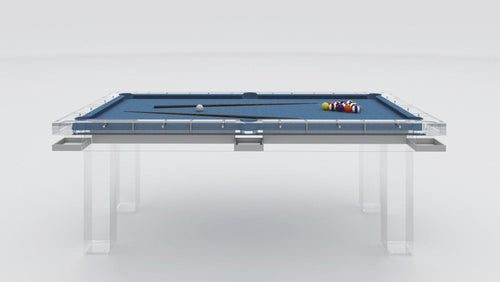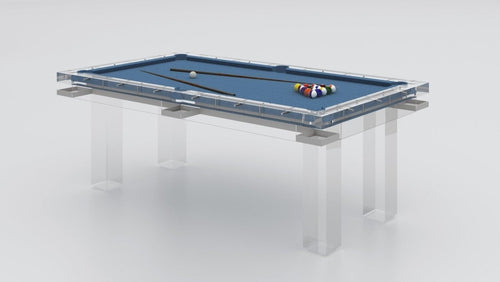Enjoy our modern designs
How Much Do
Pro Pool Players
Actually Earn?
A clear-eyed look at prize money, sponsorships, and the supplemental income streams that make a professional career at the table possible.
Professional pool blends skill, strategy, and precision — but how lucrative is a career at the table? Whether you're an aspiring player or a curious fan, here's an honest look at what the numbers actually say.
Average Earnings
by Level



Most professionals rely on a mix of winnings, sponsorships, and side ventures. Aspiring players should plan for income variability and diversify their revenue streams from day one.— The reality of a professional pool career
Key Factors
Affecting Income
-
Tournament Results
High placements equal bigger payouts — and at the elite level, the difference between winning and finishing second can be tens of thousands of dollars. Consistent deep runs, not single wins, are what build reliable prize-money income.
-
Sponsorship Appeal
Media presence, social following, and personal brand amplify a player's value to sponsors beyond their pure competitive ranking. A highly watchable mid-tier player can outearn a higher-ranked but lower-profile competitor in sponsorship income.
-
Location & Regional Culture
Regions with strong pool cultures — the Philippines, the US tournament circuit, Europe's carom scene — offer significantly more events, larger prize pools, and a denser network of sponsors than emerging markets.
-
Broader Economic Conditions
Market health directly affects sponsor budgets and the scale of prize pools. Economic downturns can contract sponsorship spending and event prize funds simultaneously, compressing earnings across all tiers.
Earnings vs. Other
Cue Sports
| Sport | Top Annual Earnings | Prize Pool Scale | Notes |
|---|---|---|---|
| Pool (Billiards) | $300K–$700K+ | Moderate | Strong US and Asian circuits; fragmented across multiple governing bodies |
| Snooker | $1M+ for top players | Large | UK-dominated; well-organized tour with major broadcast deals inflating prize funds |
| Carom Billiards | $50K–$150K | Small | Smaller global following; strongest in Europe and Korea; limited sponsorship market |
Challenges &
Supplemental Income
Professional pool players navigate financial challenges that most mainstream athletes do not face at comparable skill levels. Travel costs — flights, lodging, and entry fees — can consume 20 to 40% of gross prize winnings for a mid-level player competing on an international circuit. Income fluctuation year to year is high; a single poor tournament run can dramatically reshape an annual total.
To build sustainable careers, most professionals develop multiple income streams alongside competition.
Private lessons and group clinics are the most reliable supplemental income for competitive players — demand is consistent, rates are strong, and scheduling can flex around the tournament calendar.
Owning or managing a pool hall converts playing knowledge into business income — and gives the player a base for coaching, league hosting, and equipment sales on top of the hall's direct revenue.
Streaming, YouTube instruction, and affiliate partnerships have opened a new income category unavailable to previous generations — and one where a player's teaching ability and on-camera personality matter as much as their ranking.
Ready to invest in the game you love? Explore our collection of premium pool tables — built to the standards that serious players demand.
Shop Premium Pool Tables →

























